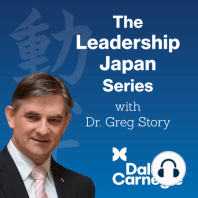9 min listen
168: Real Freedom
ratings:
Length:
10 minutes
Released:
Sep 14, 2016
Format:
Podcast episode
Description
Real Freedom Motivational quotes are everywhere and they remind us of useful things we already know, but have forgotten. Two recent messages struck me with their introspective power. Both are by recognised thought leaders. One was a distinguished academic, psychologist and philosopher. The other was a distinguished psychologist and holocaust survivor. Their conclusions are profound and achieved through different experiences and understandings of the human psyche. William James (1842-1910) taught at Harvard and has been called “the father of American psychology”. He was a leader in the idea that we could control our lives through our mind. He said, “The greatest discovery of our generation is that human beings can alter their lives by altering their attitudes of mind. As you think, so shall you be”. This was a breakthrough notion at that time. The prevailing idea had been that God’s will, chance or luck determined your life. Victor Frankl (1905-1997) a concentration camp inmate, survived the holocaust and subsequently wrote a fascinating book called, “Man’s Search For Meaning”. Through his personal experience of horrendous torment he found, “Everything can be taken from a man…but the last of the human freedoms – to choose one’s attitude in any given set of circumstances, to choose one’s own way”. Given we have this mental power to control how we think, then why is it we are so poor at it? We find ourselves replaying the movie in our mind, on a pitiful endless loop, of some past humiliation, insult, degradation or unfairness that we have suffered. If we can control our thoughts, then why can’t we hit the pause button on that movie and keep it from polluting our present life? We don’t muck around either, do we. Not only have we unleashed the horrid past to continue to haunt us like a zombie crypt debut, we invite the future apocalypse into our today as well. We imagine all of the things that will go horribly wrong in the future. We attack our optimism muscle with thoughts of future doom and gloom, thereby disabling it. We can’t seem to turn these thoughts off either. Real freedom is to be able to recognise that while we can’t completely turn these ugly musings off, we can neutralise them. You might ask, can we separate worry from reminiscence and from divination? How do we do that? Let’s use two of Dale Carnegie’s stress management principles. Let’s live in ”day tight” compartments. Think of each day like an air-tight container into which nothing can enter. We need to concentrate on shutting out the worry component, not trying to block the complete recollection or prospect. We observe our memories, relive the pain, but firmly tell ourselves that was the past: “I am not going go back to that time ever again”. We can see our pain point in our mind’s eye, but we don’t have to attach ourselves to it or embrace it, as if a crocodile has gripped us in a death roll. This is similar to meditation techniques, where you observe your breath cycle, but you don’t attach your mind to it – you just note it and let your mind move on. Our control and therefore real freedom, is over the amount of worry we ascribe to the memory or the foreboding. Regarding the past, we can determine to cooperate with the inevitable. Face the fact it happened, knowing we can’t change that. Having done so, now let’s switch our thoughts away from that memory to something much more pleasant or successful in the interim. Let’s switch out our debilitating thought with a much more positive memory. For the future, we should prepare for it, but again not attach the worry emotion to it. Let’s view it this way: what is the worst that can happen? Having contemplated that prospect, we mentally accept that this is inevitable and will happen. Mentally, we prepare for the worst. Finally, we get our brain working on how we can improve on the worst? We switch from mental incapacitation and paralysis, to producing possible solutions and alternatives. We mov
Released:
Sep 14, 2016
Format:
Podcast episode
Titles in the series (100)
1: Flexible Japan - Stop Dreaming: japan.dalecarnegie.com by The Leadership Japan Series
